| Zeitschrift Umělec 2002/3 >> “We’re the Hippies of Tomorrow” or “Oh, Xao Seffcheque Was Right After All” (According to Foyer des Artes) | Übersicht aller Ausgaben | ||||||||||||
|
|||||||||||||
“We’re the Hippies of Tomorrow” or “Oh, Xao Seffcheque Was Right After All” (According to Foyer des Artes)Zeitschrift Umělec 2002/301.03.2002 Holger Emil Bange | punk | en cs |
|||||||||||||
|
"The shout’s been coming from all four corners of the media globe: “Punk! Punk! Punk! The great Pop culture revolution is back.” Over its 25th anniversary (the year 1976 is usually hailed as the birth date of punk) revival crept yet again into mass media, this time causing a sensation. Talks and lectures, films and slide projections, DJs who finally gathered enough courage to play this music (an unheard of act for years and, if attempted, response was less than positive), studded belts and of course the — fashionably adjusted — Mohawk hair-do, which has become socially acceptable thanks to footballer David Beckham.
It finally sank in that revival, which has been brewing in the underground for a long time, had penetrated mainstream media when I heard a Sex Pistols song one morning on my car radio about a year and a half ago. How “new” and strange to hear this original 1977 punk banging away during a standard morning radio show. I immediately flashed back to that time and what is was like when this new music was changing everything that had come before. I was only ten when I flipped through the latest issue of the German youth magazine Bravo next to a swimming pool during the summer holidays of 1977. I came across an article that caught my attention: “Sex Pistols — The Band Hated Across the World.” I was intrigued. How can a band be so hated and yet so much is written about it? If everybody hates it, the band can hardly be successful, let alone sell records and sell out shows. At the end of that year I happened to see a culture program on TV featuring a short sequence from a Sex Pistols concert. That was a defining moment for me. A few days later I set out to buy the Sex Pistols single “Pretty Vacant.” And my life in punk was born. It was the first musical movement I became deeply involved in, which is understandable given my age. The media I consumed at that time included youth and music magazines, radio and television. Looking back, all three of them covered extensively punk and new wave. (The two terms were initially confused; only in 1978 were they differentiated, with new wave defining a mostly less aggressive and more intellectual movement, such as magazines or XTC, and bands working with electronic instruments such as Depeche Mode.) Of course the media presented at this time the stereotypes that are known to this date, but anyway punk was here. Every youth magazine stampeded in hysterics to the new movement so as not to miss out on this latest trend. Some music programs on both radio and television jammed the waves with punk and sometimes featured live shows of the bands. One must bear in mind, though, that most of them had contracts with large music producers such as Ariola, CBS, and Virgin who had much influence over mass media at that time, as they do today. By the end of 1978, however, the media slowly began to lose interest. But the German underground was sizzling. A number of key bands were formed, especially in Berlin, Düsseldorf and Hamburg. Magazines, fan clubs and tapes of the emerging scene made their first products; specialty record stores opened, offering space for gatherings and sources of information of enormous significance. New venues were established; festivals were born and soon new German music publishers and distribution systems emerged. At the beginning of the 1980s I also became interested in the German scene and started taking part in it. We didn’t have a music publisher in my hometown, so I had to rely on mail-order services, which also supplied everybody with a list of new items complete with descriptions and which also published advertisements in the slicker music press. The music was stylistically rich, ranging from extremely hard anarchist punk to dada-influenced electronic experimenting with Casio computers and similar machines. Regular trench warfare erupted between the various styles. In one song by the Hamburg anarchist punk band Buttocks, the lead singer insulted the Hamburg-based music publisher Zick Zack in the worst possible way for specializing in more experimental, electronic and, in a sense, more elegant bands. I enjoyed both trends: I liked electronic bands like Plan and Palais Schaumburg because of the absurdities in their lyrics, their characteristic sound and their subtle, intelligent humor. And I also enjoyed Buttocks or the better-known band Slime for their audacity and hardness, the simply unbelievable energy and rage they displayed, as well as for their political affiliations, which I considered myself a part of. Although the latter two bands’ lyrics were more than poster-like and could hardly be compared to California’s Dead Kennedys or Crass from Ireland, who transmitted political views in their texts with much savoir-faire and content, they nevertheless represented an important supplier of mottoes for the leftists of the autonomous German scene. The 1980s are still known as being relatively grimmer and more reserved, which may be correct, but I’ve never in my life discovered so much humor and irony in music again. The imaginary compilation Sehr gut kommt sehr gut (Very Good Goes Very Good) from 1981, which was labeled with a sticker reading “Watch out, this record is supposed to be a parody,” represents the peak of this humor for me. When I was buying this record I remember the shop clerk warning me, using the same words on the album, but I knew what to expect. Exil-Grazer Xao Seffcheque, who was hanging out in the Düsseldorf music scene since the end of the 1970s, made a record with a couple of friendly musicians, parodying several German bands. He published the song “Dreams of Success” under his own name. It is a parody of the song “Dreams of Kebab” — performed by Deutsch Amerikanische Freundschaft but better known in the version by the band Fehlfarben (Colors of Failure) — in which Seffcheque turned the popular line of the original song “We Are the Turks of Tomorrow” into “We are the Hippies of Tomorrow.” Seffcheque realized very soon that punks and wavers (followers of the New Wave) would occupy in the near future the same position as their obvious enemies, members of the hippie movement: They will sit in (punk) companies, and not Atatürk, as the original song goes, but Atatak, the label that is still operated by the band Plan, is the new leader. Although things haven’t gone this far, the trend has already been set. The emotional peak of punk revival arrived last fall when the book Verschwende deine Jugend (Waste Your Youth) hit the shops. The book is a so-called documentary novel on German punk and New Wave scenes. In one year the author interviewed 100 representatives of that time. From about 1,000 hours of talk he selected individual sequences and compiled them chronologically/thematically to create a coherent story. I read the book on a train one rainy day; it was indeed nice to meet up again with “good old friends.” Memories, almost buried, were unearthed and new elements were revealed. The media went mad over the book and were still publishing reviews six months after it came out. It was a strange feeling to experience a revival when I was a part of and helped promote the original scene. This book supplied the impetus for the exhibition Zurück Zum Beton (Back to Concrete), which took place from 7 July to 15 September 2002 at Kunsthalle Düsseldorf. The title of the exhibition refers to a song by the Düssledorf band Syph in which they criticize the emerging Green movement — perhaps not because of the movement’s principles but more likely due to their roots in the Hippie movement. In contrast to the book, the exhibition’s reception was ambivalent. Some (ex)activists and pop-theorists rightfully asked what “fan club magazines with mildew stains” were doing in “glass showcases” and they rejected the execution. I, too, visited Kunsthalle Düsseldorf with mixed emotions. We’ve really come a long way: former cultural revolutionaries — politically motivated hardcore punks and artistically experimental conceptual musicians — are presented in the shrine of the educated bourgeoisie, who only want to show off their liberalism and tolerance for those nice rebels of past times. However, enough time has passed and a new chapter in the history of (high) culture is reserved for the entire movement. Similarly, there is the absurdity of Düsseldorf’s mayor preaching up the creative and active scene of that time in an opening speech while at the same time his biggest desire is to chase flaking punks from public spaces — just as his predecessors did more than 20 years ago. But let’s talk about the actual exhibition: The walls in the gallery’s first hall were strewn with posters, flyers, photographs and handwritten notes like one huge collage. There was a lot to discover for an insider. The inexpert at least was left with an optimistic experience, which says a lot about the esthetics of that time. The esthetic side of punk was represented through piles of fan club magazines, which were displayed on stands and which visitors could copy on the adjoining photocopier. This is where the circle closed: Copiers were the only accessible means of reproduction for all makers of fan club magazines, which recipients could once again appreciate at the exhibition. The same room was filled with a number of LP and single covers, which enabled me to see originals of those I had only heard of. Among them was a record by Foyers des Arts whose song “Ach der Wolfram Siebeck der hat ja so rech” (Oh, Wolfram Siebeck Was So Right) mocked the star TV cook Wolfram Siebeck. Another stand offered listening posts with tapes of unreleased, rare and live material. And then there were the showcases with “fan club magazines with mildew stains,” which in themselves were unique editions. Often they made up entire objects, such as Muzak, which was distributed in McDonald’s apple pie packaging, and Willkürakt (Arbitrary Act), which appeared in every imaginable kind of absurd wrapping and, boldly speaking, could be considered a multiple. The selection of films, video footages and slides was so vast that one needed more than a day to see it all. On view were a number of slide shows, each with 160 images of performances, parties and snapshots, which until now have been inaccessible to the public. Especially delightful for me was the amateur video footage of concerts by bands I only knew from photographs and record covers. The second room showed projections of more professional (documentary) films. Among them was a movie about the Berlin concert hall SO36 and its Düsseldorf counterpart, Ratinger Hof, both considered seminal for today’s scene. The third exhibition hall was a real cabinet of curiosities, displaying among other things Brontologic, which was allegedly one of two original music “computers” in Germany. Brontologic was assembled in 1981 by Werner Lambertz and Kurt Dahlk. Dahlk published some of the most significant electronic records of that time under the name Pyrolator and was also a member of the important band Plan. The band exhibited a stage decoration painted by member and artist Moritz R®, which was the only “real” work of art at the exhibition. For an old fan, the exhibition was a rewarding visit. However the sour taste remains for the aforementioned reasons. From a formal point of view, punks of that time really are the hippies of today, yet they occupy a number of important positions, and not only in the independent music industry. However, most of them should be credited for having preserved some of their ideals for today’s world, and for having made a difference after all. Zurück zum Beton (Back to Concrete) — Origins of Punk Movement and New Wave in Germany, 1977–1982, Kunsthalle Düsseldorf, 7 July – 15 September 2002. "
01.03.2002
Empfohlene Artikel
|
|||||||||||||
|
04.02.2020 10:17
Letošní 50. ročník Art Basel přilákal celkem 93 000 návštěvníků a sběratelů z 80 zemí světa. 290 prémiových galerií představilo umělecká díla od počátku 20. století až po současnost. Hlavní sektor přehlídky, tradičně v prvním patře výstavního prostoru, představil 232 předních galerií z celého světa nabízející umění nejvyšší kvality. Veletrh ukázal vzestupný trend prodeje prostřednictvím galerií jak soukromým sbírkám, tak i institucím. Kromě hlavního veletrhu stály za návštěvu i ty přidružené: Volta, Liste a Photo Basel, k tomu doprovodné programy a výstavy v místních institucích, které kvalitou daleko přesahují hranice města tj. Kunsthalle Basel, Kunstmuseum, Tinguely muzeum nebo Fondation Beyeler.
|








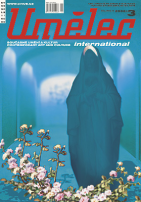






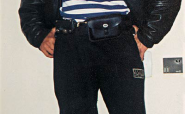
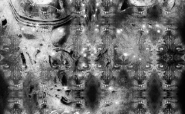
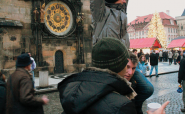
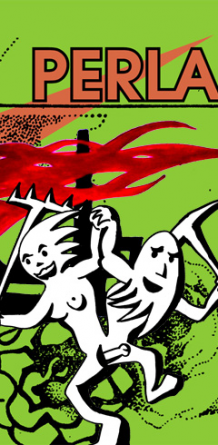











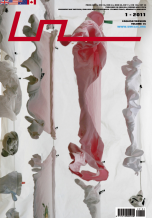
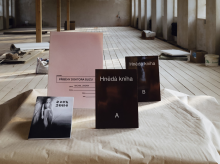

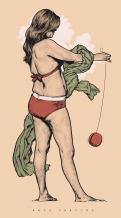


 We Are Rising National Gallery For You! Go to Kyjov by Krásná Lípa no.37.
We Are Rising National Gallery For You! Go to Kyjov by Krásná Lípa no.37.
Kommentar
Der Artikel ist bisher nicht kommentiert wordenNeuen Kommentar einfügen